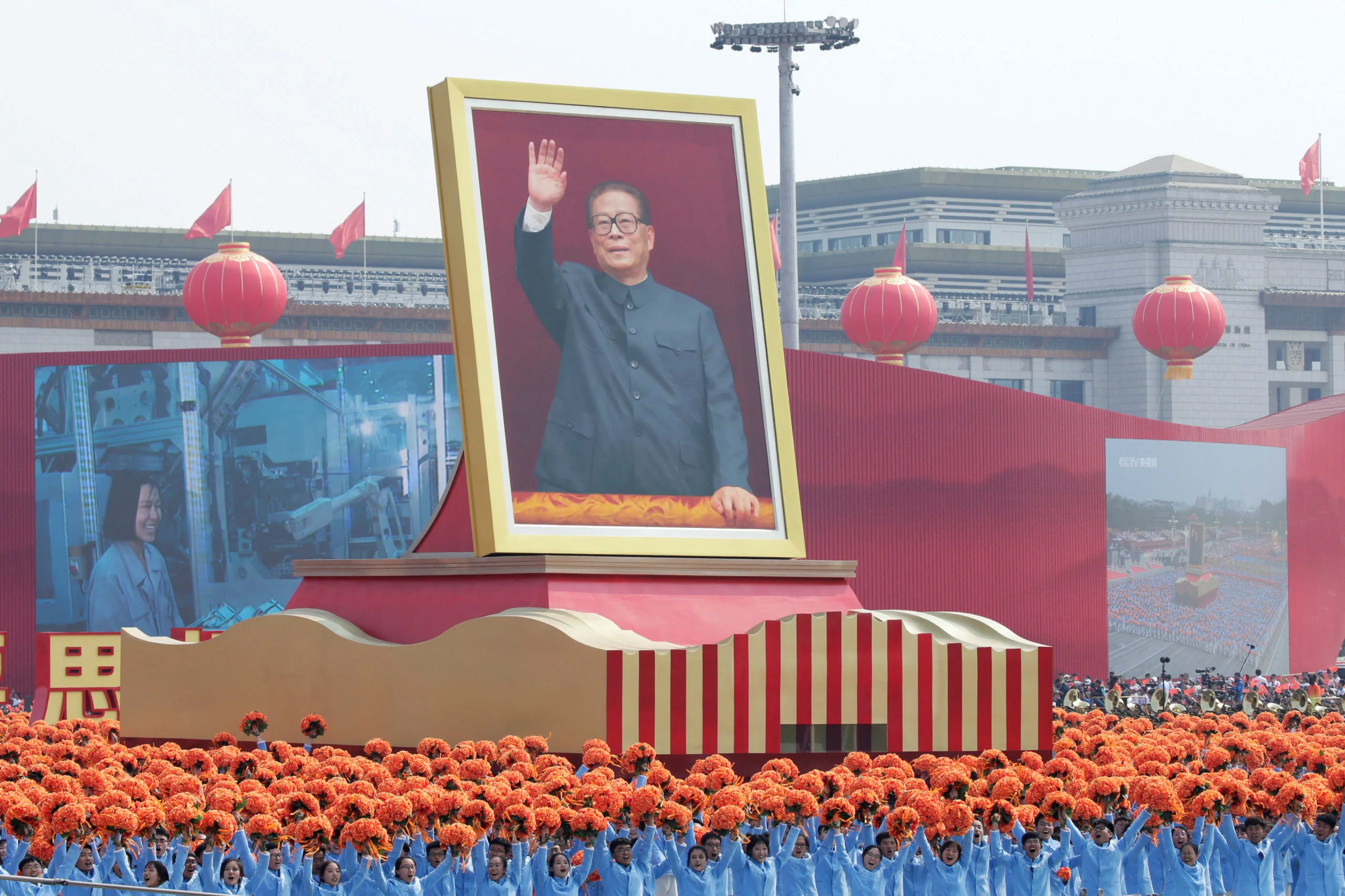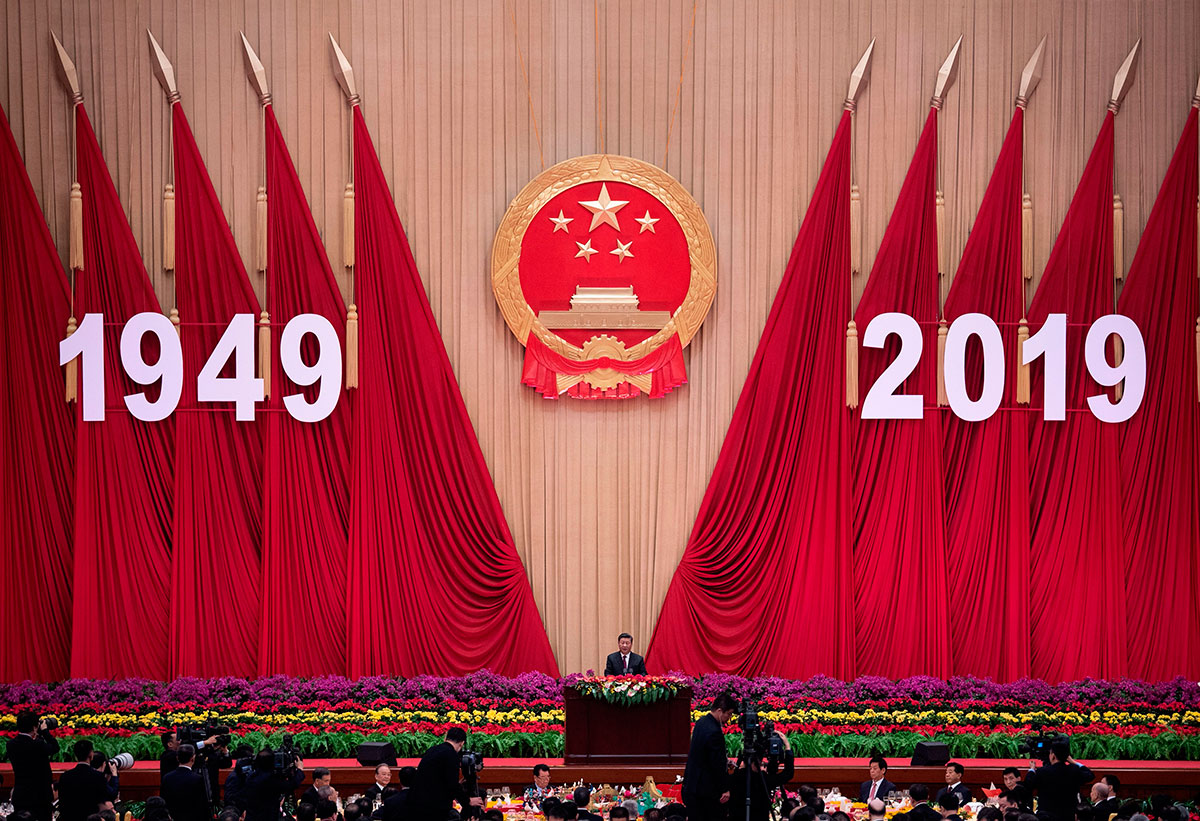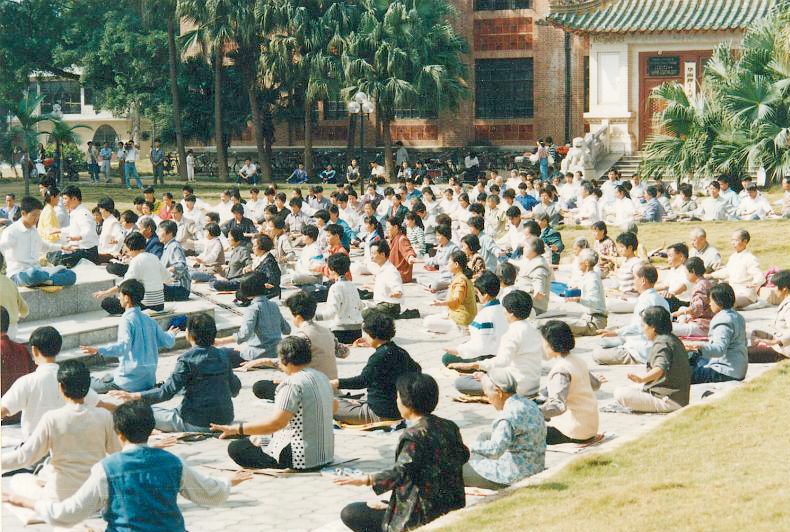Jiang Zemin, China’s former leader who led the country through a transformational era from the late 1980s to the new millennium, died Wednesday at the age of 96, according to China’s state news agency.
Jiang took power in the aftermath of the Tiananmen Square crackdown and guided the world’s most populous country to its emergence as a global powerhouse.
“Jiang Zemin died on Wednesday at the age of 96 due to leukemia and multiple organ failure in Shanghai at 12.13pm on Nov 30, 2022,” Xinhua reported.
When Jiang took over as President in 1989, China was still in the early stages of economic modernization.
During his presidency, China’s economy grew at a 9% annual rate, with military spending increasing at a 15% annual rate.
Jiang also presided over Hong Kong’s return to China from Britain in 1997, after more than 150 years of British rule, despite the fact that the territory’s return had been negotiated by Deng Xiaoping in 1984.
By the time he stepped down as president in 2003, China had joined the World Trade Organization (WTO) and was well on its way to becoming a superpower.
Analysts believe Jiang and his “Shanghai Gang” faction remained influential in communist politics long after he left the top job. His wife Wang Yeping and two sons survive him.
China’s 70th anniversary of founding
Jiang was last seen in public in October 2019, alongside other former leaders, at Tiananmen Square for a military parade commemorating the People’s Republic of China’s 70th anniversary of founding.
Under Jiang’s leadership, China weathered the Asian financial crisis of 1997-1998, joined the WTO in 2001, and won the bid to host the 2008 Summer Olympics in Beijing.
Jiang counted the return of Hong Kong to China in 1997 after more than 150 years of British rule as one of his proudest achievements, even though the territory’s return had been mediated by paramount leader Deng Xiaoping in 1984.
More significant was most likely his “Three Represents,” a progressive theory with an enigmatic name that helped shape modern China by inviting entrepreneurs – once regarded as the running dogs of capitalism – to join the party.
On the invitation of the late monarch, then-President Jiang Zemin paid a state visit to Thailand in 1999. (Photo courtesy of Tawatchai Kemgumnerd)
Despite rumors that he wanted to stay in power, Jiang stepped down as party leader in 2002.
He handing over the reins to Hu Jintao in China’s first bloodless leadership transition since the 1949 revolution.
His guests, who expected a polished, urbane president, were met instead by a gregarious ex-automobile factory manager who would occasionally burst into song, recite poems, or play musical instruments.
“He had a unique sense of style that could be a little too extravagant at times. I believe he was a better human being than Hu Jintao “Jean Pierre Cabestan, a political science professor at Hong Kong Baptist University, agreed.
“Jiang Zemin was more willing to be natural, even if it could be perceived as vulgar and not very sophisticated at times.”
Deng chose the Soviet-trained technocrat, who was serving in Shanghai at the time, to take over the reins of power.
Jiang was widely regarded as a centrist candidate when he took over for reformer Zhao Ziyang, who had been deposed by hardliners for sympathizing with the democracy movement crushed by the army around Beijing’s central Tiananmen Square in June 1989.
Many compared Jiang to Mao’s chosen successor, Chairman Hua Guofeng, who was deposed by Deng in the late 1970s after only a few years in power. But Jiang persisted, adding the presidency to his resume in 1993.
Jiang, eager to persuade neighbouring, self-ruled Taiwan to accept Chinese sovereignty, threatened the island with war games and missile tests in the run-up to its first direct presidential election in 1996, severing bilateral relations for more than a decade.
Jiang travelled to the United States for the first time in 1997.
“American poet Longfellow once wrote, ‘But to act that each tomorrow finds us farther than today… Act, act in the living present,'” he said in English to then-US President Bill Clinton.
“We should follow the trend of the times, respond to people’s will, and continue our march forward toward the establishment and development of a constructive, strategic partnership,” he said.
Jiang oversaw crises in Sino-US relations following the 1999 NATO bombing of Beijing’s embassy in Belgrade and the 2001 collision in Chinese airspace of a Chinese jet fighter and a US spy plane, which brought bilateral ties to their lowest point since diplomatic contact was re-established in 1971.
Jiang was one of the few world leaders to meet US President George W. Bush at his Crawford, Texas ranch in 2002.
– The economy is booming, but unrest is looming –
Jiang’s transformation of China was fraught with difficulties. Political reform stalled, and liberties were restricted.
Year after year, Jiang presided over spectacular growth, but the wealth gap widened, corruption worsened, and social unrest grew, forcing his successor, Hu, to champion society’s have-nots.
On December 2, 2002, Chinese President Jiang Zemin, right, shakes hands with Russian President Vladimir Putin at Beijing’s Great Hall of the People. (AFP photo)
China’s Falun Gong spiritual group declared a cult by Jiang
On Tibet, Jiang was hesitant to deal with the exiled spiritual leader of the region, the Dalai Lama, who had appointed a six-year-old boy as the second most senior monk in Tibetan Buddhism.
In 1995, China placed the child under house arrest and appointed another boy as the 11th Panchen Lama.
Jiang also declared the Falun Gong spiritual group a cult in 1999, following a siege of the Zhongnanhai leadership compound in Beijing by 10,000 of its members.
Jiang took many cues from the late Mao Zedong, the founder of Communist China.
He didn’t do much to dispel the comparison. Floats carrying giant portraits of Mao, Deng, and Jiang passed Tiananmen Square during the People’s Republic’s 50th anniversary celebrations in 1999.
Mao demonstrated his fitness by swimming in the Yangtze River in 1966. Jiang visited the United States in 1997 and went swimming at Hawaii’s Waikiki beach.
Many Chinese regard Mao as a gifted poet. In 1999, one of Jiang’s poems was featured on the front pages of several newspapers.
Jiang, like Mao, wore his pants above his waist and brushed his hair back.
He enjoyed singing and would occasionally engage in spontaneous sing-alongs with foreign leaders. He could also lose his cool.
In 2000, the usually jovial president chastised Hong Kong journalists for questioning whether the territory’s then-leader, Tung Chee-hwa, was “the Emperor’s choice” to serve a fifth five-year term.
“Do you know that the media needs to improve its knowledge? Your questions are overly simple, even naive!” Jiang yelled.
While China was economically successful under Jiang, it was politically stagnant. Fear of instability following the Tiananmen Square protests and the collapse of the Soviet Union stifled reform debates in the 1980s.
Nonetheless, he earned a place in China’s socialist pantheon. In 2002, his “Three Represents” theory was incorporated into the party constitution, alongside the revered Mao Zedong Thought and Deng Xiaoping Theory.










